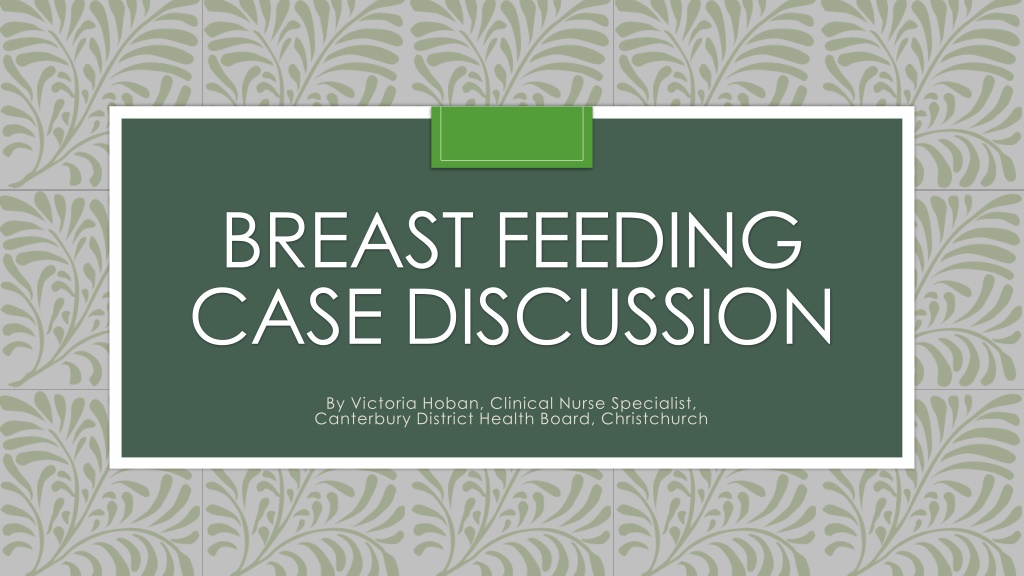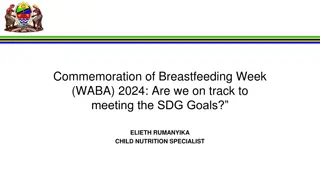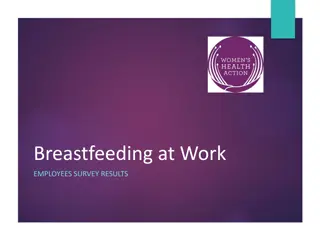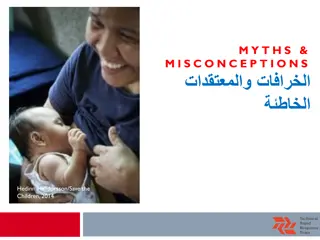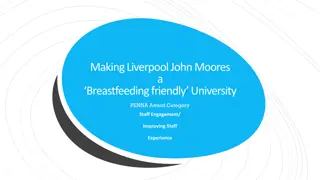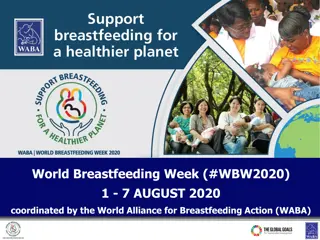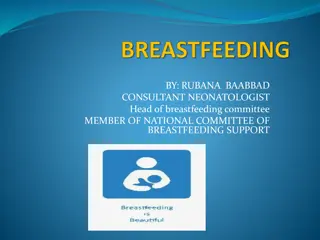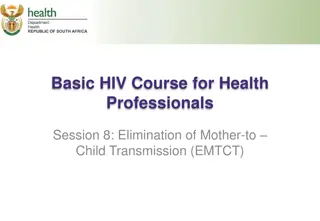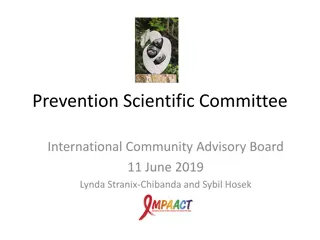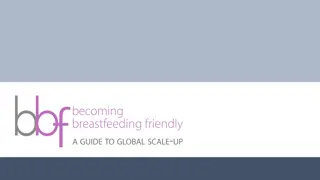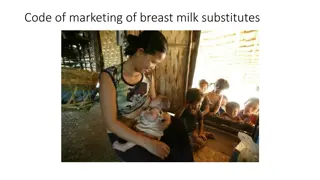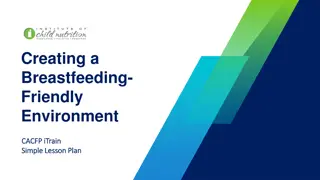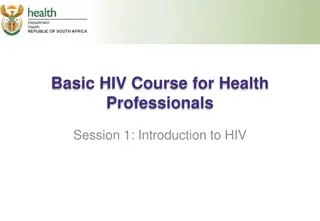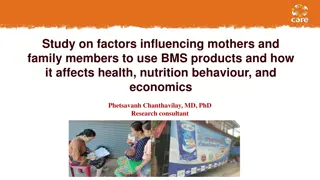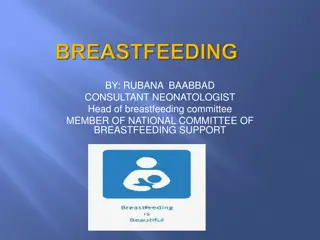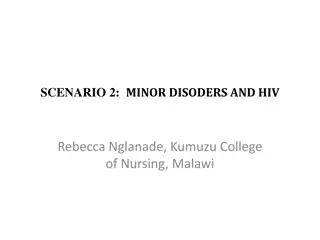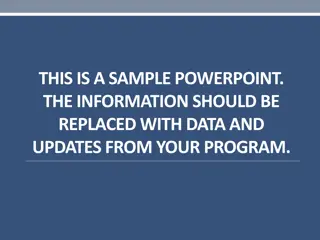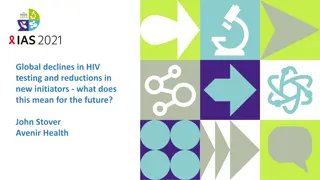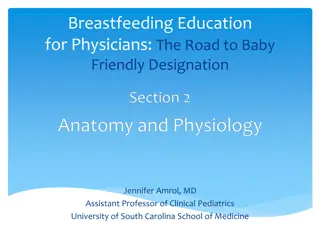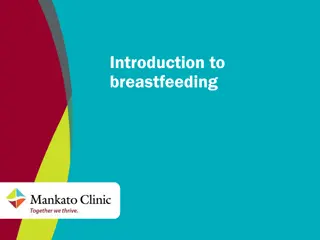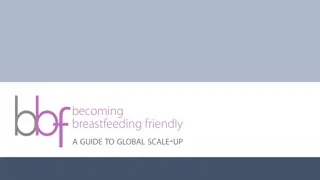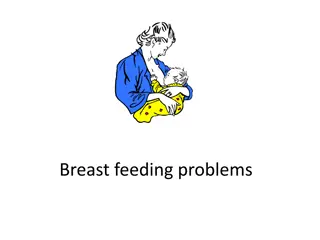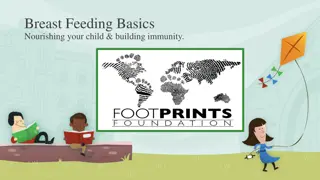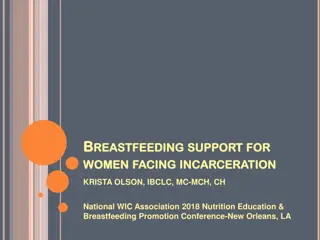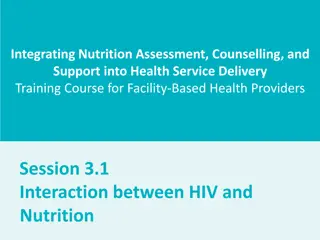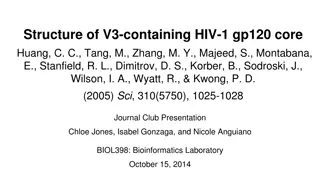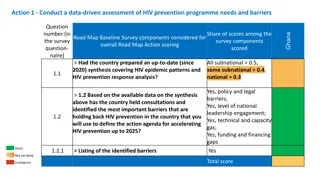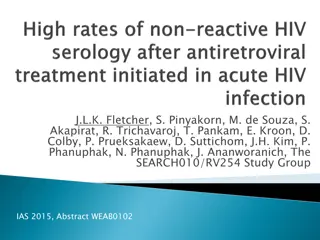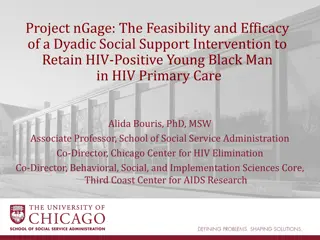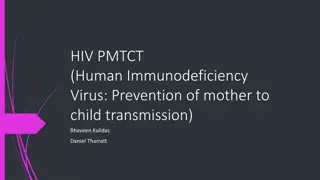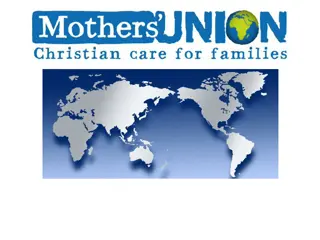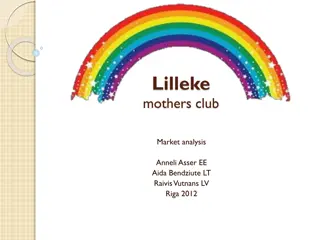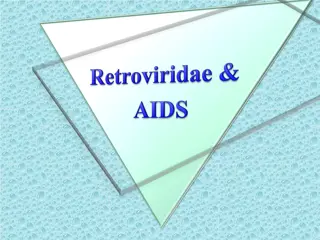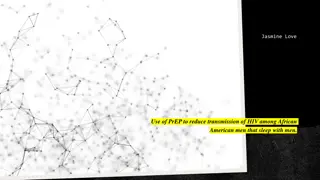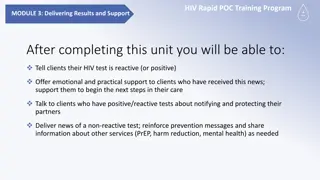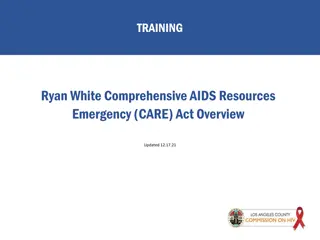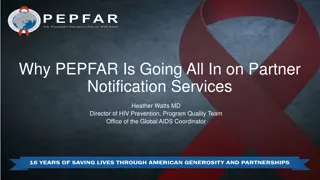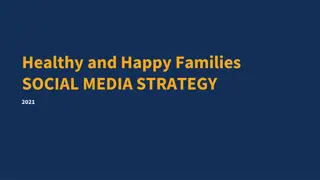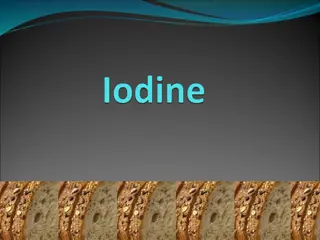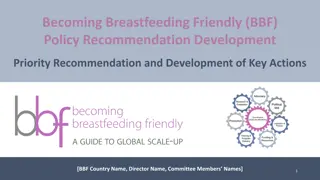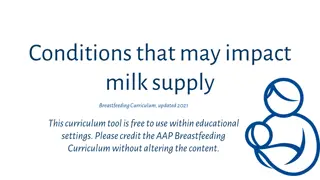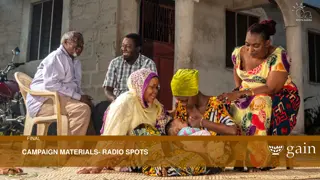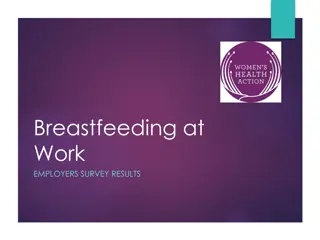Breastfeeding Decision Making for HIV Positive Mothers: A Case Discussion
This case discussion revolves around two African ethnicity mothers, Alice and Adele, who are HIV positive and face challenges in deciding the best feeding option for their babies. The session outlines their backgrounds, available options, considerations, and the stigma associated with formula feeding in their community. The discussion also highlights the lack of evidence-based knowledge on HIV transmission through breast milk, emphasizing the need for careful consideration in balancing the known risks and benefits.
Download Presentation

Please find below an Image/Link to download the presentation.
The content on the website is provided AS IS for your information and personal use only. It may not be sold, licensed, or shared on other websites without obtaining consent from the author. Download presentation by click this link. If you encounter any issues during the download, it is possible that the publisher has removed the file from their server.
E N D
Presentation Transcript
BREAST FEEDING CASE DISCUSSION By Victoria Hoban, Clinical Nurse Specialist, Canterbury District Health Board, Christchurch
Session outline. Introduction Alice & Adele Background Options Why? Why not? How did it go? Update on babies and mums Closing thoughts & Discussion
ALICE & ADELE
Background. African ethnicity Supportive, involved husbands No extended family in NZ Status is secret from community here Both making this decision for the first time since diagnosed Access to specialist health care Undetectable viral loads Good CD4 counts (i.e. >400)
Options available 1. Colostrum from the donor milk bank, then onto formula 2. Colostrum and milk from the donor milk bank 3. Self funded formula 4. Compassionate supply of formula Initial supply is for 3 months. An additional 3 months if needed (if application approved) Both mothers aware that no matter which option they chose, their baby must be fed this exclusively.
I want to do this, its good for my baby *Adele & Alice If you re not breastfeeding then you ve got it , and there is huge stigma around that *Adele
Its a huge thing (to us), but its not a huge thing in the big scheme of things for New Zealand The research is old and not reflective of the NZ situation *Adele
THE KNOWN: Fear Stigma People in NZ have access to: safe water supply Reliable high quality formula Baby also needs to be on meds (Baby PrEP) MOH recommendation is not to breast feed. THE UNKNOWN: Evidence based knowledge and research about HIV in breast milk is lacking (in developed countries) Impact of medications on baby Complications which may occur due to breast feeding The extent of external factors such as stress, pressure, finances Viral rebound Health professional bias
Considerations identified when making the decision. Wanting to give baby the best start A desire to bond with baby Cultural norms and influence Social pressure Easy, convenient, instant Cost Reduces post partum depression Feel good factor Its empowering
Babies are now 4 months and 20 months old Both babies are HIV negative at time of last test Both BF for approximately 3 months then switched to formula; Neutropenia around the 3 month mark Insufficient milk supply
I am really, really glad I did, but would I do it again? I would have to think very carefully at the time *Adele
CLOSING THOUGHTS & DISCUSSION
